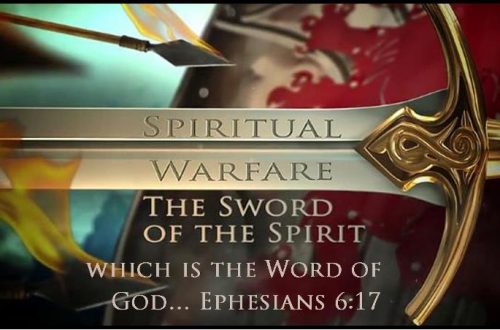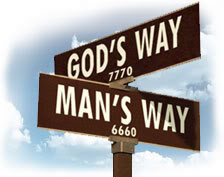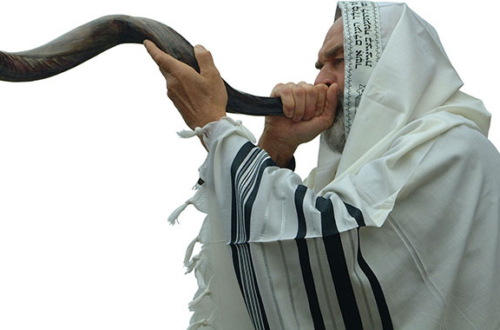Moses, used by God to intervene on behalf of His apostate people
Title: Moses, used by God to intervene on behalf of His apostate people
Aim: To assess how to respond to the temptations we face each day.
Scripture: Exodus 32:1–14
Apostasy conceived and enacted, Exodus 32:1-6
Exodus has two principal sections. The first (chaps. 1–18) portrays God as the Savior and Provider of His people. The second (chaps. 19–40) depicts the Lord as being holy and righteous.
Through God’s revelation of Himself, He instructed the Israelites in His sovereignty and majesty, goodness and holiness, grace and mercy. They discovered that the Creator is the one and only Lord of heaven and earth.
Crucial to the narrative is Moses’ role as mediator between God and His people. As the Lord’s chosen bondservant, Moses was the implementer of judgment against Egypt, and was the person through whom God delivered the people of Israel.
Furthermore, through Moses, God gave His revelation at Sinai. Moses also shepherded the people through the wilderness to the promised land.
Moses pleaded for the people, and he was the one through whom the Lord provided food and water. Moses’ role in the history of redemption foreshadowed Jesus’ advent as the Mediator of the new covenant (Deut. 18:15–18).
An examination of the chapters leading up to Exodus 32 indicate that Moses had been on Mount Sinai—and had not been seen by the Israelites—for 40 days (24:18). During that time, while the Creator met with Moses, God promised to give Moses tablets of stone containing the law.
So, Moses, accompanied by Joshua, journeyed farther up Mount Sinai and remained there 40 days and nights. There God revealed to Moses the materials that would be needed to put together the tabernacle.
The Lord also told Moses how to construct the various furnishings that would be placed in the shrine. When the Creator had finished speaking with Moses on Mount Sinai, God presented Moses the two tablets of stone on which the Lord had inscribed the Ten Commandments (Deut. 9:9).
The biblical text states the tablets were “inscribed by the finger of God” (Exod. 31:18; Deut. 9:10). Some specialists think the Lord wrote on the tablets using supernatural phenomena. Others maintain the Creator did so using a natural phenomenon, such as lightning. Still others say the “finger of God” simply represents the Lord’s might and power.
In ancient times, both parties making a solemn agreement usually kept a copy of the covenant. For this reason, many specialists think the two tablets given to Moses were duplicates.
Though the stone tablets with the Ten Commandments inscribed on them have never been recovered, we do have God’s Word to us as recorded in the Bible. Also, just as the ancient Israelites were responsible to observe laws of God inscribed on stone, so we are responsible to obey God’s Word as it is recorded in Scripture.
Perhaps toward the later part of Moses’ extended absence (Deut. 9:11), the Israelites grew anxious and impatient. They incorrectly concluded that the lawgiver would not be returning to guide them into the promised land. They dismissively referred to him as “this Moses” (Exod. 32:1) and seemed to minimize the fact that God had used the lawgiver to bring the Israelites out of Egypt (1 Sam 10:27; 21:15; 25:21; 2 Sam 13:17).
So, the tribal and clan leaders went to Aaron, Moses’ brother and the first high priest of Israel (Exod 4:14; 28:1-5). Aaron was married to Elisheba, the daughter of Amminadab (6:23).
We can only imagine how intimidated Aaron must have felt when his Israelite peers encircled him and began demanding that he make new “gods” (32:1) to lead them into Canaan. Having lived in Egypt for a long time, the Israelites apparently could not get used to the truth that “God is spirit” (John 4:24) and “lives in unapproachable light” (1 Tim. 6:16).
The people wanted a deity they could see with their own eyes, an entity with a face, one like all the other nations venerated. The Israelites’ idolatrous demand was fueled by an apostate heart.
Surprisingly, Aaron did not hesitate to grant his peers’ treasonous request. He told the people to collect and give him their “gold earrings” (Exod. 32:2), which were probably part of the plunder they had taken from the Egyptians at the beginning of the Exodus (12:35-36). Just as personal items were to be contributed for the building of the tabernacle (25:1-7), now a collection was made for an idolatrous cause.
It’s difficult to know why Aaron proposed to use the gold earrings to make an idol. Perhaps he did not have the resolve of his brother, Moses, to keep the renegade tendencies of the Israelites in check. It may also be that Aaron was stalling for time, especially if a group of malcontents were beginning to incite the people to rebel.
Exodus 32:3 leaves the reader with the impression that it did not take the Israelites long to collect their gold jewelry and bring them to Aaron. In turn, he melted down the metal and poured the gold into a mold that was shaped like a young bull (v. 4). Throughout the Fertile Crescent, this animal was regarded as a symbol of strength, vigor, and fertility.
Some think that the calf-shaped idol was primarily made from wood rather than solid gold. If so, Aaron plated the image with gold leaf and then used an engraving tool to further shape and form the exterior.
Others claim this idol may have been in the form of the Egyptian bull-god, Apis. Since the Israelites had spent more than four centuries in Egypt, they would have been familiar with this figure of a pagan deity. Still others, however, assert the idol may have represented the bull into which the god, Baal, allegedly transformed himself on occasion.
In any case, when the Israelites saw the statue, they proclaimed it to be the embodiment of a pantheon of “gods,” who supposedly were responsible for rescuing them from Egypt. Both their statement and the statue blatantly transgressed the first two of the Ten Commandments (Exod. 20:1-6; Deut. 5:6-10).
Once Aaron had completed the calf idol, he built an altar in front of it. Most likely, the platform was a crude structure hastily made from field stones and dirt.
Aaron announced that a religious festival was to be held the following day in honor of the Lord (Exod. 32:5). The people, however, had a far different intention. The Israelites were so enthusiastic that they got up early the next morning and made sacrifices to their new idol.
“Burnt offerings” (v. 6) could have included bulls, rams, or male birds (Lev. 1; 6:8-13; 8:18-21; 16:24). “Fellowship offerings” (Exod. 32:6) could include a variety of animals without physical defects from the people’s flocks and herds (Lev.3; 7:11-34).
Next, the people sat down to consume their festive meal. Then, after they finished eating, Exodus 32:6 literally says the Israelites “rose up to play.” The GNT rendering suggests that the people’s celebration included the practice of sexual immorality. This type of orgy would have mirrored some of the ancient fertility rites practiced among the pagan Canaanites.
Because God is omniscient, He knew His people were engaging in heathen revelry, even though He was talking with Moses at the time. In Egypt, the enslaved Israelites had been indoctrinated with the idea of localized gods and goddesses who were not all-powerful or all-knowing. Despite the Lord’s many miracles, the Israelites still failed to grasp the concept of the one true God’s infinite power and knowledge.
Apostasy’s consequence, Exodus 32:7-14
God directed Moses to descend from the mountain and return to the Israelite camp. Interestingly, the Lord referred to the group as “your people” (Exod. 32:7; see Deut. 9:12), rather than as His chosen flock (Exod 3:7; 5:1; 7:4, 16; 9:1, 17; 10:3–4).
The Creator also stated that it was Moses who led the Israelites out of Egypt. Most likely, the Lord, in His anger against the people’s apostasy, deliberately chose not to acknowledge them as His own.
Tragically, in such a short span of time, the Israelites had “acted corruptly” (32:7) or “corrupted themselves.” The underlying Hebrew verb means “to spoil,” “to ruin,” or “to destroy.” It’s the same term used in Genesis 6:12 to describe the perversion of the earth’s inhabitants living in Noah’s day.
The issuance of the Ten Commandments was intended to prohibit the Israelites from practicing idolatry, immorality, and insurrection. Amazingly, though, in the span of a few weeks, the people abandoned what the Lord had declared in the Decalogue.
The Israelites deliberately chose to make a bull-calf out of melted gold. Then they prostrated themselves in veneration before the idol and offered sacrifices to it. They even had the audacity to declare that the statue was the epitome of the deities who allegedly emancipated them from Egypt (Exod. 32:8).
The Creator declared to Moses that the Israelites were a “stiff-necked people” (Exod. 32:9; Deut. 9:13; 10:16; 31:27; Neh 9:16; Jer 19:15). In a figurative sense, it’s as if God’s chosen flock were walking in His presence when He called out to them to head in a specific direction. Sadly, though, like a defiant bull-calf (such as the one they idolized), they refused to turn their necks to hear and heed what He declared.
Because of the Israelites’ pride, they spurned God’s will, deciding instead to resolutely travel down a subversive path. The Lord threatened to punish their rebellion by destroying them and building a new nation with Moses as its patriarch (Exod. 32:10; Deut. 9:14).
Moses, showing his love for his fellow Israelites, reminded the Creator of all He had done for them. Moses acknowledged that his peers were mutinous, but he also pointed out that despite their insurrection, they were God’s chosen people (Exod. 32:11).
Moses then pleaded for the Lord’s mercy, basing the lawgiver’s appeal on two factors. First, if God destroyed the Israelites, the Egyptians and their pagan deities would be vindicated. The destruction of the Israelites would be a sufficient reason for the Egyptians to mock the one true God, even calling Him evil (v. 12).
Second, the Creator would be delaying His own plan for establishing the patriarchs’ descendants in the land of Canaan. Moses reminded the Lord about His promise to make Abraham’s offspring innumerable and to bring His people into the promised land. For God to wipe out the Israelites and start over with Moses would be to delay that promise for many generations (v. 13; see Gen. 12:7; 22:17).
Thanks to Moses’ timely intercession, God did not impose the judgment He had threatened. The Hebrew verb translated “relented” (Exod. 32:14) denotes the presence of compassion and mercy. It points to a change in the response of the Creator because of the action of those with whom He is dealing.
In this case, it was Moses’ intercession that made the difference. From this outcome we learn that the Lord is neither static nor rigid in His relationships with human beings.
The narrative recorded in Exodus 32 showcases the efficacy of intercession. Moses’ petition on behalf of the Israelites should be an incentive to us regarding our intercessory prayers for others. After all, as James 5:16 says, the “earnest prayer of a righteous person has great power and produces wonderful results” (NLT).
The broader horizon of the Father’s redemptive plan brings into sharp relief the Son’s never-ending role as the believers’ merciful and faithful High Priest. The risen and ascended Messiah is the Christians’ Mediator and Advocate for all eternity before God’s celestial throne of grace (1 Tim 2:5–6; Heb 2:16–18; 4:14–16; 7:15; 1 John 2:1–2).
As we contemplate the nature of God’s dealings with the Israelites, we discover seven characteristics about Him. First, the Lord is sovereign over human affairs. He acted on behalf of His people to deliver them from oppression.
Second, God cares for His people. He had seen His people’s suffering and this led Him to raise up Moses as a deliverer for the Israelites.
Third, the Creator makes daily provisions for His people. During the Exodus, God satisfied the Israelites’ needs for food and water. They could not have survived in the desert otherwise.
Fourth, we learn that the Lord is utterly holy and pure. God’s sacredness was evident in His provision of the law and His instruction that His people live righteously. Even the layout and the furnishings of the tabernacle demonstrated His holiness and purity.
Fifth, the Creator desires that His people obey Him. God instructed the Israelites to heed not only the Ten Commandments, but also the rest of His law. Obedience would bring them blessing, while disobedience would bring them chastisement.
Sixth, the Lord directed His people. Throughout the Israelites’ wilderness journey, God continually led them by a cloud during the day and by a pillar of fire during the night. They were not left to find their own way.
Seventh, the Creator desired His people to exclusively worship Him. One of the purposes for the construction of the tabernacle was for the Israelites to be able to worship God and enjoy His presence. The Lord wanted His people to set aside time to be completely and wholly focused on Him.
For thought and application
Too often when we read tragic stories like the one about the Israelites’ sin, we think that nothing like that could ever happen to us. We would never betray God for the sake of some dumb idol. We’re too smart for that, we tell ourselves.
Nonetheless, every circumstance in which we must make moral and spiritual choices is like the issue the Israelites faced when they looked around and worried about how they would keep going if Moses never returned to their camp. The people became alarmed, and instead of asking God for help, or seeking the wise counsel of discerning leaders, they crafted a golden calf to venerate.
Scripture often cautions believers to be aware of temptations around them. For instance, in 1 Corinthians 10:7, Paul warned against being idolaters by quoting Exodus 32:6. The apostle understood that believers tend to be even more vulnerable to temptation when they feel spiritually strong. If truth be known (or told), some Christians incorrectly think that because they are spiritually mature, they won’t be enticed to rebel.
Believers who are thoroughly biblical in their theology and determined to please God in their lifestyles face temptations just as anyone else. Godly living is no more a matter of knowledge and willpower than is salvation. In fact, Satan takes particular delight in tripping up believers who imagine they are impervious to insurrection (of which idolatry is one glaring example).
We not only need to be more aware of the enticements we face, but even more importantly, we need to seek God’s help in overcoming them. Mere knowledge of how we are being tempted will only make the lure more desirable and us less resistant.
The episode involving the Israelites and the golden calf reminds us that the sin of apostasy involves mingling biblical truth with theological error. In turn, doing so breeds perversion, both in terms of heretical beliefs and ungodly behavior.
If the church is to be faithful to the Savior, we cannot mix our faith in Him with strange ideas about “truth” that are popular in contemporary culture. Believers must be unequivocal in their declaration that Jesus alone saves. We cannot try to combine Christian faith with the so-called good elements in other religions.
The Israelites’ renegade example is a strict warning that in a day when all religions supposedly lead to God, we must be true to the Lord’s commands. The Father alone is worthy of our wholehearted devotion and worship, and He only revealed Himself in the Son.




